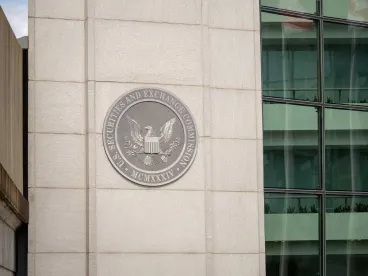SEC Division of Enforcement Director Gurbir Grewal and several high-ranking officials from the U.S. Attorney’s Offices for the Southern and Eastern Districts of New York and the FBI spoke on November 29, 2022 at a conference sponsored by Sandpiper Partners LLC concerning hot topics in SEC and DOJ enforcement. The panelists all made clear that the views they expressed were their own, but those views are worth hearing.
SEC Director Grewal’s Remarks
Director Grewal stated that his mission is to restore public trust in the securities markets through proactive enforcement efforts. He outlined three goals:
-
Working with a sense of urgency. Director Grewal opined that quicker resolutions of investigations and proceedings are better for everyone. Delayed resolutions drag out the process for the targets, create mistrust in the public’s mind, and impair the SEC’s ability to collect evidence. Quicker resolutions might require abbreviated “Wells” processes, with meetings occurring at lower levels of the Staff in some cases.
-
Focusing on emerging risk areas. Director Grewal mentioned three such areas:
-
Private funds, where “opacity” is “concerning,” including as to fees and expenses, conflicts of interest, and fraud;
-
Crypto, an area where he said recent events have borne out the risk profile; and
-
ESG, including asset managers’ not following their policies and procedures in marketing ESG funds.
-
-
Engaging in sweeps. Director Grewal views multiple, simultaneous actions as having a powerful deterrent effect. He mentioned recent actions against 17 broker/dealers for books-and-records violations.
Director Grewal also discussed his views on cooperation. SEC orders in settled actions frequently cite cooperation as a mitigating factor, even if the respondent agrees to potentially significant penalties. Director Grewal expressed the view that companies and individuals should not be allowed to violate the law and then decide to cooperate, with the expectation that no penalty will be imposed. He said that upcoming orders might show what “good cooperation” is.
As for admissions of liability in settled actions, Director Grewal said that admissions have long been required under prior administrations, and he expects them to be part of resolutions where the respondent has obstructed the investigative process or has engaged in significant misconduct or caused significant market harm, and/or where a deterrence message is needed. Some 20 orders in the last fiscal year included admissions.
Director Grewal also noted that about 75%-80% of the resolutions in the last two fiscal years involved individuals. He views individual accountability as necessary to promote public trust.
In addition, Director Grewal briefly addressed alternative data and said that funds must perform due diligence on the sources of the data they use.
SDNY/EDNY and FBI Officials
Scott Hartman, Chief of the Securities and Commodities Fraud Task Force in the U.S. Attorney’s Office for the Southern District of New York, discussed the following focuses of his unit:
-
Traditional investment fraud, including insider trading, investor fraud, public-company accounting fraud, and willful violations of SEC rules and regulations;
-
Private funds, including inadequate disclosures and misrepresentations of risk metrics; and
-
Crypto issues, including insider trading and other fraud.
Sagar K. Ravi, Co-Chief of the Complex Frauds & Cybercrimes Unit in the U.S. Attorney’s Office for the Southern District of New York, listed the following priorities:
-
National-security cyber issues, including those involving state actors;
-
Crypto hacks, scams, money-laundering, and fraudulent initial coin offerings;
-
Traditional fraud, including consumer fraud, tax fraud, and FCPA violations; and
-
Bankruptcy fraud.
David Pitluck, Chief of the Business and Securities Fraud Section in the U.S. Attorney’s Office for the Eastern District of New York, cited the following priorities:
-
Clearing the backlog of trials left over from pandemic closures;
-
Crypto frauds, including those in which retail investors are harmed;
-
FCPA violations;
-
Sanctions violations, which have been called “the new FCPA”;
-
Tax fraud;
-
Bankruptcy fraud; and
-
Healthcare fraud, including issues relating to Covid 19 and the Paycheck Protection Program.
Paul F. Roberts, Jr., Assistant Special Agent in Charge of the Complex Financial Crimes Branch of the FBI in New York, mentioned the following areas of interest:
-
Securities, commodities, and bank fraud, money laundering, and other swindles;
-
Protecting retail investors and recovering assets for victims; and
-
Areas perceived as having less transparency and regulation, including private funds and crypto.
The panelists also discussed cooperation issues and corporate policies concerning data on employees’ personal devices.
-
Chief Pitluck stressed the importance of timely cooperation, rather than holding off on providing information to the government until the company or its counsel has conducted a full investigation and processed and packaged the results. Cooperation, in his view, also includes production of overseas evidence. He said that the onus is on the company to produce evidence from abroad and that “good cooperation” can work through issues involving privacy or blocking statutes or other perceived impediments to production.
-
Chief Hartman expressed surprise that companies do not collect data and information from employees’ personal devices, and he expects them to do so. He said that he would not fault companies if individuals refuse to produce that information to them, but he expects companies at least to try to collect the information. Agent Roberts agreed that the FBI would be aggressive in trying to obtain information from employees’ personal devices.



 />i
/>i

